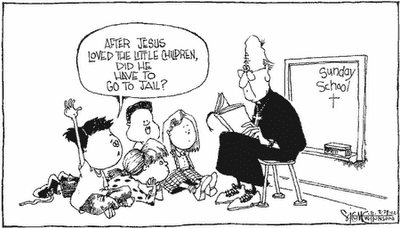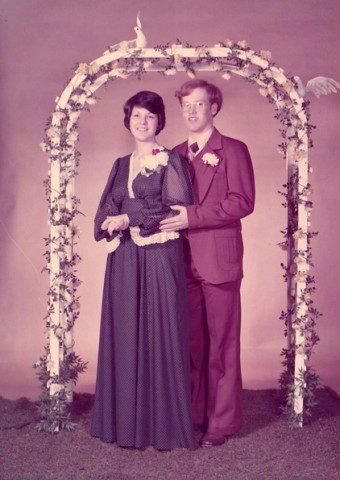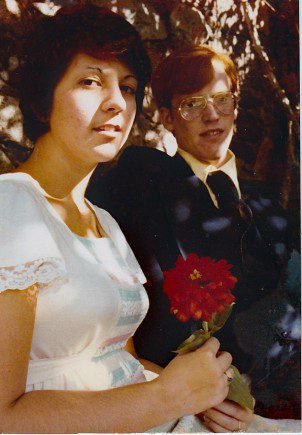
Evangelicalism teaches the followers of Jesus that they are to live lives devoted to the teachings of the Bible. What teachings believers are expected to follow varies from church to church, pastor to pastor, and congregant to congregant. Whatever standard Evangelicals follow, they are expected to practice Biblical separation. They are expected to separate from sin, the “world,” and false teaching.
2 Corinthians 6:14-17 says:
Be ye not unequally yoked together with unbelievers: for what fellowship hath righteousness with unrighteousness? and what communion hath light with darkness? And what concord hath Christ with Belial? or what part hath he that believeth with an infidel? And what agreement hath the temple of God with idols? for ye are the temple of the living God; as God hath said, I will dwell in them, and walk in them; and I will be their God, and they shall be my people. Wherefore come out from among them, and be ye separate, saith the Lord, and touch not the unclean thing; and I will receive you.
I John 2:15-16 adds:
Love not the world, neither the things that are in the world. If any man love the world, the love of the Father is not in him. For all that is in the world, the lust of the flesh, and the lust of the eyes, and the pride of life, is not of the Father, but is of the world.
Note that John says that if someone loves the “world” the love of God is not in him. In other words, he is not a Christian. According to 1 Thessalonians 5:22, Christians are to “abstain from all appearance of evil.” If a behavior even looks sinful, believers are supposed to abstain from it. Christians are supposed to avoid circumstances where their actions might cause unbelievers and other Christians to think they are sinning.
Peter reminds the followers of Christ in 1 Peter 1:14-16 that they are to be holy, just as their Father in Heaven is holy:
As obedient children, not fashioning yourselves according to the former lusts in your ignorance: But as he which hath called you is holy, so be ye holy in all manner of conversation; Because it is written, Be ye holy; for I am holy.
It’s clear, at least to me, that the Bible teaches that Christians are to practice separation; that they are to be in the world, but not of the world. My wife, Polly, and I took separation seriously. We viewed the “world” as people, things, and institutions that were aligned against Christians, the church, and the teachings of the Bible. That’s why we homeschooled our children or sent them to a Christian school. We didn’t want them tainted by the world. There were times, of course, when contact with the world was unavoidable, but we tried our best to avoid getting cooties on us and our children. The church became a safe enclave for us to hide from the “world,” and we only left when absolutely necessary.
Christians are also commanded to separate from churches, preachers, and parachurch organizations that promote heresy or heterodoxy. Early in the ministry, I was quite strict in this regard — not fellowshipping with anyone outside of the Independent Fundamentalist Baptist (IFB) church movement — but as I got older, I was willing to fellowship with preachers and churches that held different beliefs from me, as long as we were in agreement on the essentials. From 1995-2002, I pastored Our Father’s House in West Unity, Ohio. We had an advertising slogan we used that said: The church where the only label that matters is Christian. Churches and pastors I wouldn’t associate with in 1980, I was happy to fellowship with in 2000. My tent became larger the longer I was in the ministry.
Many Evangelical churches and pastors practice what is called “secondary separation.” Got Questions describes “secondary separation” this way:
The Bible teaches personal separation—the commitment of an individual believer to maintain a godly standard of behavior, separating from those who are living an ungodly lifestyle. The Bible also teaches ecclesiastical separation—the commitment of a church to maintain the purity of the gospel message, cutting ties with those who have compromised their doctrine. Secondary separation takes things a step further: not only does one separate from an individual or group due to sin or heresy, but one also separates from anyone who does not likewise separate from those individuals or groups.
This is how secondary separation works:
- Peter Ruckman is a thrice-divorced, racist IFB pastor who teaches heresy about the nature of the Bible.
- I separate from Ruckman.
- John R. Rice is Ruckman’s friend and continues to support and platform him despite his divorces, racism, and heresy.
- Secondary separation requires that I separate from Rice and anyone else who refuses to separate themselves from Ruckman.
As non-Evangelical readers might imagine, practicing separation and secondary separation require constant vigilance and judgment. I found it wearying, always forced to be on the lookout for the “world’s” encroachment. I thought, at the time, that if I gave an inch to the world, it would take a mile. Satan wanted nothing more than to destroy my witness, harm my marriage, and corrupt my children. In the late 90s, I was so focused on avoiding the world that I considered moving my family to a Bruderhof — an intentional AnaBaptist community.
Eventually, I came to the conclusion that it was impossible to totally separate oneself from the world; that secondary separation was little more than Phariseeism. For the next decade, I became more and more worldly, even going so far as to watch R-rated movies and listen to secular music. We even went to a drive-in movie theater as a family to watch two sex-filled, violent movies, George of the Jungle and Air Bud. Both Polly and I, and our children, embraced things that would have been “sins” years before. Certainly, we still had standards and we avoided behaviors and practices deemed “worldly,” but we took the starch out of our collars, realizing that separation was just a way for Evangelicals to say to the world and other Christians that we were not only different from them, but better — more holy and sanctified.
Of course, my critics will point to the post as yet more evidence that I was on a slippery slope; that the more worldly I became, the less I loved Jesus. This, of course, is patently untrue. What I had learned is that a lot of the shit that I thought was life and death didn’t really matter; that it wasn’t my place to judge the lives and associations of other Christians; that none of us is perfect. Jesus said, “He that is without sin among you, let him first cast a stone.” I stopped chucking rocks at not only myself but others.
Bruce Gerencser, 68, lives in rural Northwest Ohio with his wife of 47 years. He and his wife have six grown children and sixteen grandchildren. Bruce pastored Evangelical churches for twenty-five years in Ohio, Texas, and Michigan. Bruce left the ministry in 2005, and in 2008 he left Christianity. Bruce is now a humanist and an atheist.
Your comments are welcome and appreciated. All first-time comments are moderated. Please read the commenting rules before commenting.
You can email Bruce via the Contact Form.










